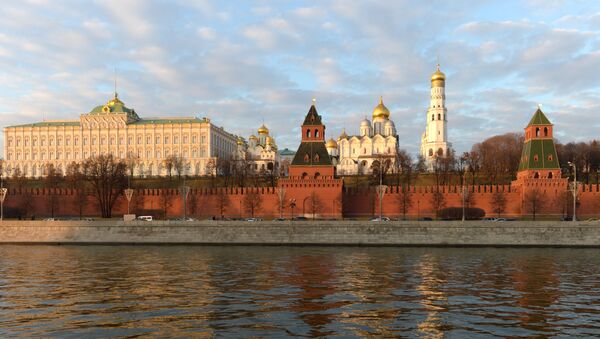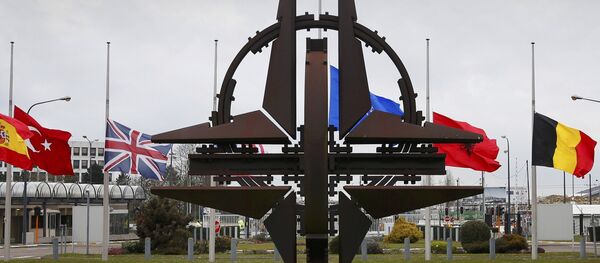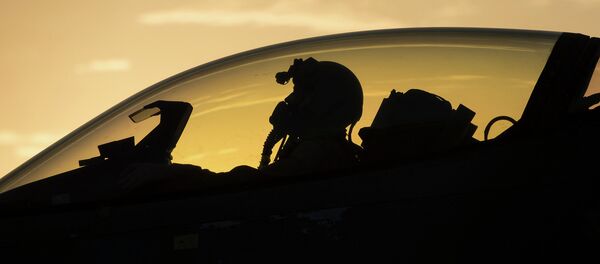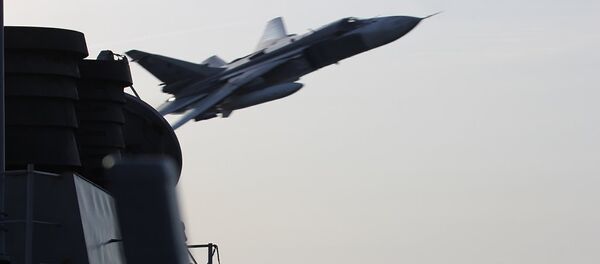Russian Foreign Ministry spokeswoman Maria Zakharova told journalists Tuesday that she hopes that the meeting would "become a venue for a truly honest, equal and fundamental discussion of vital security issues."
In her article for the Independent British journalist and political commentator Mary Dejevsky stresses that the Russia-NATO Council meeting "represents a big diplomatic victory for Russia."
"This week's NATO-Russia Council meeting represents a big diplomatic victory for Russia. More significantly, however, it constitutes a victory for realism in foreign policy, on the part of East and West," she writes.
"But the particular initiative, the attitudinal change that revived the NATO-Russia Council came from the Western side. It was the West that had blocked pretty much all channels of communications in the wake of Crimea, and it was the West that was now trying to re-establish them," Dejevsky emphasizes.
According to the political commentator, the suspension of the forum by the West was a regrettable move. She noted that prominent Western analysts, including former NATO Secretary General, Lord Robertson, warned that the lack of communication channels between NATO and Russia has made the situation in Europe even more unstable than it had been during the previous Cold War.
"This week's meeting of the NATO-Russia Council offers the first hint that the realists may finally be gaining ground in the contest for Western Russia policy, the first acknowledgement by the West that in Ukraine it might have overplayed its hand, and the first evidence that — in the diplomatic jargon — NATO is trying to build an 'off-ramp,'" Dejevsky underscores.
"It is true — and the Russian ministry is right in pointing this out — that the NATO-Russia Council's decision to suspend its activities in 2014 was not a great moment for diplomacy," Ischinger, who himself was involved in the Council's founding in the mid-1990s, told Deutsche Welle.
Ischinger stressed that the West "[needs] dialogue with Russia."
He admitted that although the West should provide protection to NATO member states, "an open and comprehensive dialogue with Russia, based on the concept of partnership" should remain one of the foundations of the Western foreign policy strategy.
"NATO does not want to create a new East-West border 1,000 kilometers (620 miles) east of the old one that ran through Germany. We want to overcome that border altogether. That is why we need dialogue with Russia," he noted.
"I am pleased that the NATO-Russia Council has resumed its work," Ischinger remarked.
"From the German Foreign Ministry's point of view, it's good that this meeting took place. If you're asking me about concrete expectations, then Berlin's expectations are not tied to what happens after one round of negotiations with Russia…that all of the topics will be swept aside, taken from the agenda, and announced with solutions," Schaefer told journalists Wednesday.
Earlier on Tuesday, Russian Foreign Minister Sergei Lavrov noted that the upcoming meeting is supposed to not only reflect NATO's stance on the ongoing tensions but also to take Moscow's position into consideration.
"We made it clear that this cannot be 'business as usual,' or be a one-way street, and the agenda which was agreed upon for tomorrow's session does not only reflect what NATO needs but also what Russia is interested in," Lavrov said during a press conference.
The NATO-Russia Council was founded in 2002 as a consultative forum where wide range of security issues could be discussed by Moscow and the West. The Council's work was suspended in 2014 amidst growing tensions between Russia and the West over the Ukrainian crisis.




